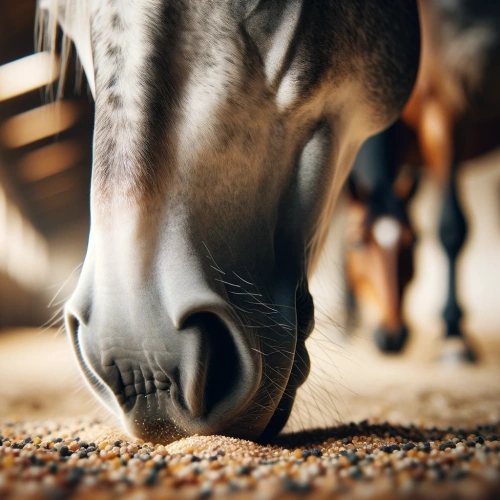Innovations for horse training
Innovations for horse training focus on monitoring technology, data analysis and improved training environments. Sensors and tracking devices, such as heart rate and movement monitors, enable the physiological performance of horses to be monitored during exercise. The data collected is then analysed to adjust training programmes. Innovative equipment such as aquatic treadmills and racing simulators offer specific training environments to improve fitness and preparation for racehorses.
In addition, innovative care approaches, such as physiotherapy, personalised nutrition and the use of alternative therapies, contribute to the overall health of the horses. In addition, educational tools such as virtual reality for jockeys and online equine training resources are also being used to hone skills and ensure the well-being of horses during their preparation.
New technology for performance analysis during horse racing
Horse racing has benefited from advanced technologies to analyse horse performance during races. Real-time tracking systems, such as GPS and sensors, provide live data on the horses' speed, position and heart rate. The use of high-speed cameras and thermal imaging allows in-depth analysis of the horses' biomechanics as well as their body temperature to detect any signs of heat stress.
In addition, data analysis software using sophisticated algorithms interprets this data, providing detailed information on the performance, effort and strategies adopted by horses and jockeys. These advances provide trainers, owners and punters with a better understanding of equine performance, enabling them to optimise training, improve racing strategies and look after the welfare of the animals.
New technology for race management
Horse racing has seen the integration of various technologies for more efficient event management. Centralised management software allows races to be planned, organised and managed, handling entries, timetables and jockey allocation. Mobile applications provide easy access to real-time information for organisers, participants and spectators. At the same time, live broadcasts via online platforms have made racing accessible to a wider audience, offering an immersive experience.
On the other hand, advances in security include the use of cameras and tracking systems to monitor horses and jockeys. Performance analysis platforms help evaluate past and current data to adjust training strategies. These combined technologies aim to enhance the spectator experience, improve event safety and optimise the performance of horses and jockeys.
Current Trends in Racehorse Nutrition
In the world of horse racing, horse nutrition has evolved significantly, with an increasing emphasis on personalised, scientifically-based diets. Current trends highlight the importance of a balanced diet, which not only provides the energy required for top-level performance, but also takes into account the horse's overall health and well-being.
- Functional foods and supplements: The incorporation of functional foods, such as omega-3s and antioxidants, is gaining in popularity. These nutrients play a crucial role in reducing inflammation, protecting against muscle injury and supporting cardiovascular health. In addition, the use of probiotics to improve digestive health and supplements to strengthen bones and joints is becoming increasingly widespread.
- Personalised Nutrition: The 'one size fits all' approach is giving way to personalised diets. These diets are developed based on each horse's age, weight, breed, activity level and specific needs. Equine nutritionists use blood tests and other diagnostics to create tailor-made diets.
- Competition Cycle Diet: An emerging trend is the adjustment of diet according to the phases of the competition cycle. This includes an increase in carbohydrates for energy before a race and a diet rich in proteins and nutrients for recovery after the event.
- Sustainability and Ethical Food Sources: The provenance of food and its impact on the environment are becoming major concerns. The use of ingredients from sustainable and ethical sources is being encouraged, reflecting a growing awareness of animal welfare issues and environmental impact.
- Technology in Feed Management: The use of technology to monitor horses' feed intake and digestive health is increasing. Apps and devices allow accurate monitoring of feed and quickly identify any nutritional problems.
Unrestricted betting
with a foreign operator
You're up to speed on "Current trends in horseracing". Improve on other subjects:

